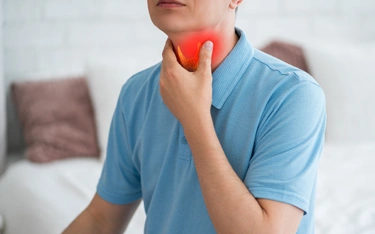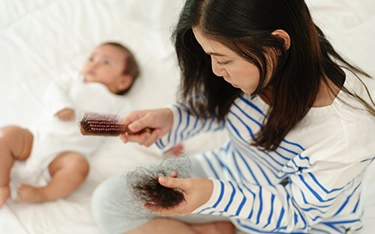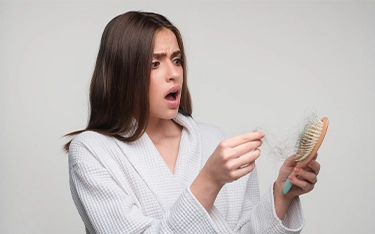FAQs
Can thyroid disorders cause hair loss?
Yes. Thyroid disorders can disrupt the hair growth cycle, leading to diffuse thinning, brittle strands, and excessive hair shedding.
How can I tell if my hair loss is due to a thyroid disorder?
If hair loss is accompanied by weight changes, fatigue, or menstrual irregularities, it may be linked to thyroid imbalance. Blood tests confirm the diagnosis.
What are the benefits of homeopathy for thyroid-related hair loss?
Homeopathy treats both the hormonal cause and hair symptoms safely. It restores hormonal balance and encourages healthy, natural hair regrowth.
How long does it take to see results from homeopathic treatment?
Most patients see visible improvement in hair density within 3 to 6 months of starting personalised homeopathic care.
What lifestyle changes can support thyroid health and prevent hair loss?
Eat a balanced diet, manage stress, sleep well, and stay active. Avoid crash dieting or overexertion, both of which can affect thyroid balance.





